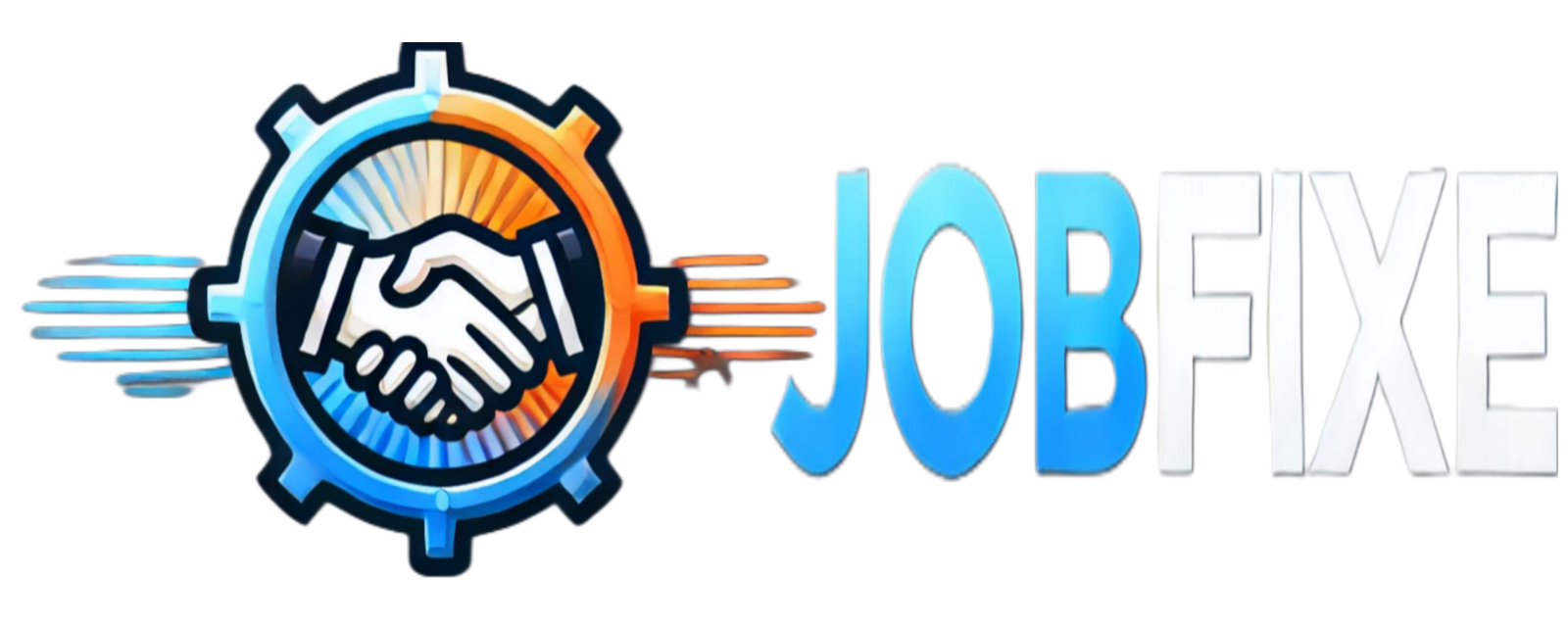How to Ace Interviews for Remote Finance Jobs
Table of Contents
Introduction
Ever wondered why less than 15% of candidates actually make it through to the final interview rounds for remote finance jobs, despite the surge in available positions? In today’s evolving job market, remote finance jobs have transformed from a rare perk to a mainstream work arrangement. The finance industry has embraced remote work more rapidly than predicted, with a 63% increase in remote finance jobs postings since 2020. This shift demands a new approach to interview preparation, resume crafting, and skills presentation. Whether you’re a seasoned financial analyst or an accounting professional looking to transition to remote work, understanding how to effectively position yourself for these competitive opportunities is crucial. This comprehensive guide will equip you with strategies to stand out in interviews for remote finance jobs and secure your ideal position.
Job Requirements for Remote Finance Jobs
Securing remote finance jobs requires meeting specific qualifications and demonstrating unique skills that employers prioritize when hiring for virtual teams. Here’s what you’ll typically need:
Essential Qualifications:
- Educational Background: Bachelor’s degree in Finance, Accounting, Economics, or related fields (Master’s degree or MBA often preferred for senior positions)
- Professional Certifications: CFA, CPA, CFP, or MBA (depending on specialization)
- Technical Expertise:
- Advanced Excel skills (including macros, VLOOKUP, pivot tables)
- Financial modeling and forecasting
- Experience with financial software (QuickBooks, SAP, Oracle Financials)
- Data visualization tools (Tableau, Power BI)
Remote-Specific Skills:
- Self-Management Abilities:
- Proven time management and organization skills
- Ability to work autonomously with minimal supervision
- Strong written communication abilities
- Technology Proficiency:
- Experience with collaboration tools (Slack, Microsoft Teams)
- Familiarity with project management software (Asana, Trello)
- Comfort with video conferencing platforms
- Security Awareness:
- Understanding of data protection practices
- Familiarity with secure file sharing and financial data handling protocols
Alternative Qualifications Employers May Accept:
- Equivalent practical experience instead of formal education in some cases
- Demonstrated self-taught skills with portfolio evidence
- Relevant transferable experience from adjacent industries (consulting, business analysis)
- Completion of specialized financial bootcamps or certification programs
Having these qualifications will position you well for remote finance jobs, but remember to emphasize your remote work capabilities alongside your financial expertise during interviews.
Application Timeline
When applying for remote finance jobs, understanding the typical timeline helps you plan your job search more effectively:
| Stage | Estimated Duration | Notes |
|---|---|---|
| Resume & Cover Letter Preparation | 2-3 days | Allow extra time for customization to specific remote finance jobs |
| Application Review by Employers | 1-3 weeks | Larger financial institutions often take longer than smaller firms |
| Initial Screening (Phone/Video) | 30-45 minutes | Usually scheduled within 1-2 weeks of application |
| Technical Assessments | 2-4 hours | May include financial modeling tests or case studies |
| Main Interview Rounds | 1-3 weeks | Typically 2-3 interviews with different stakeholders |
| Final Decision & Offer | 1-2 weeks | Negotiation period may extend this timeframe |
| Total Timeline | 4-8 weeks | 25% faster with proper preparation |
Accelerated Timeline Tips:
- Complete profiles on financial recruitment platforms before applying to save time
- Prepare your remote workspace showcase and financial portfolio in advance
- Schedule your availability for video interviews ahead of time
- Have references ready to respond quickly when requested
With strategic preparation, you can navigate the remote finance jobs application process more efficiently than the average candidate.
Step-by-Step Application Process
Step 1: Research Target Companies and Positions
Begin by identifying companies that offer legitimate remote finance jobs with cultures that align with your working style. Financial technology firms, insurance companies, and investment management organizations often lead in remote work opportunities.
Action Items:
- Create a spreadsheet to track potential employers offering remote finance jobs
- Research company reviews on sites like Glassdoor specifically related to remote work culture
- Follow financial companies on LinkedIn to monitor their remote finance jobs postings
- Join finance professional groups where remote opportunities are frequently shared
dailyremote.com notes that understanding the role deeply before interviews allows you to better articulate how your goals align with the position.
Step 2: Optimize Your Resume for Remote Finance Positions
Your resume must highlight both your finance expertise and remote work capabilities to stand out for remote finance jobs.
Action Items:
- Include a “Remote Work Skills” section highlighting relevant capabilities
- Feature technologies you’re proficient in that facilitate remote financial collaboration
- Quantify achievements with metrics (e.g., “Maintained 99.8% accuracy in financial reporting while working remotely”)
- Customize your resume for each application by mirroring language from the job description
According to jobsolv.com, “To increase your chances of landing a remote job, it’s crucial to customize your resume and cover letter specifically for remote positions. Highlighting relevant skills and qualities that are sought after in remote work is essential.”
Step 3: Craft a Compelling Cover Letter
Your cover letter should explain why you’re specifically interested in remote finance jobs and how your experience prepares you for success in a virtual environment.
Action Items:
- Address why you’re pursuing remote work specifically in the finance sector
- Highlight previous experience working independently or remotely
- Demonstrate understanding of the challenges in remote financial roles
- Connect your financial expertise to the company’s specific needs
Step 4: Prepare Your Virtual Interview Environment
For remote finance jobs, your interview environment serves as a preview of your potential work setup, making it an important factor in the hiring decision.
Action Items:
- Create a professional background free from distractions
- Test your internet connection, camera, and microphone in advance
- Have financial calculators, spreadsheets, or portfolios ready to share digitally
- Prepare your space as if it were your actual remote office to demonstrate readiness
Step 5: Master Remote Interview Techniques
Interviews for remote finance jobs require specific strategies to demonstrate both your financial acumen and remote work capabilities.
Action Items:
- Practice articulating complex financial concepts clearly through video
- Prepare examples that showcase your self-management skills
- Develop stories that highlight how you’ve handled financial deadlines independently
- Practice maintaining eye contact with the camera rather than the screen
Salary Information for Remote Finance Jobs
Understanding salary ranges for remote finance jobs helps establish realistic expectations and strengthens your negotiation position. Below is a comprehensive breakdown based on experience levels:
| Role | Entry-Level | Mid-Level | Senior-Level |
|---|---|---|---|
| Financial Analyst (Remote) | $55,000-$65,000 | $75,000-$95,000 | $105,000-$135,000 |
| Remote Accountant | $50,000-$60,000 | $70,000-$90,000 | $100,000-$125,000 |
| Remote Financial Controller | $80,000-$95,000 | $100,000-$130,000 | $135,000-$180,000 |
| Remote Risk Analyst | $65,000-$80,000 | $85,000-$110,000 | $115,000-$150,000 |
| Remote Financial Advisor | $60,000-$75,000 | $80,000-$120,000 | $125,000-$200,000+ |
Salary Factors Specific to Remote Work:
- Location Adjustment: Some companies offer location-based pay for remote workers (75-90% of in-office salary in lower cost-of-living areas)
- Technology Stipends: Many remote finance jobs include $1,000-$3,000 annual technology allowances
- Home Office Setup: One-time stipends ranging from $500-$1,500 are common
- Tax Considerations: Remote workers may qualify for home office deductions
When negotiating for remote finance jobs, come prepared with market research specific to remote positions rather than traditional office-based roles.
Alternative Career Paths
If you’re pursuing remote finance jobs but want to explore adjacent opportunities, consider these alternative paths that leverage your financial expertise:
Related Remote Opportunities:
- Remote Financial Content Creator: Develop educational content about financial literacy, investing, or accounting principles
- Virtual Financial Trainer: Train staff on financial software, regulations, or procedures
- Remote Financial Compliance Specialist: Focus on ensuring adherence to regulations while working from anywhere
- Financial Systems Consultant: Help companies implement and optimize financial technology remotely
- Independent Financial Researcher: Conduct market analysis and financial research for investment firms
Skill Adaptation Strategies:
- Reframe accounting skills as data analysis expertise for broader remote opportunities
- Position financial forecasting experience as strategic planning abilities
- Highlight regulatory knowledge as transferable to various compliance-focused remote roles
- Package financial communication skills for remote business analyst positions
According to nucamp.co, “To really boost your chances of landing a remote job, focus on the skills that matter right now,” which applies to finance professionals looking to diversify their remote career options.
Interview Preparation Suggestions
Thorough preparation is essential for excelling in interviews for remote finance jobs. Consider these strategies to stand out from other candidates:

Technical Preparation:
- Practice Financial Scenarios: Prepare to work through financial models or cases in real-time during video interviews
- Virtual Whiteboarding: Practice explaining financial concepts using digital whiteboarding tools
- Technical Self-Assessment: Review job descriptions for remote finance jobs and identify technical areas to brush up on
- Mock Technical Interviews: Arrange practice sessions focusing on financial analysis or accounting questions
Remote-Specific Preparation:
- Prepare “Remote Work” Stories: Develop specific examples showcasing your ability to handle financial responsibilities independently
- Communication Demonstration: Practice articulating complex financial information clearly and concisely via video
- Self-Management Examples: Prepare anecdotes highlighting your time management and organization for financial deadlines
- Crisis Management Scenarios: Develop examples of how you’d handle financial emergencies while working remotely
Interview Question Preparation:
Prepare thoughtful responses to these common questions for remote finance jobs:
- “How do you ensure accuracy in financial reporting when working remotely?”
- “Describe your home office setup and how it enables you to perform financial tasks efficiently.”
- “How do you stay current with financial regulations without in-person professional development?”
- “What systems do you use to manage financial deadlines independently?”
- “How would you handle confidential financial information in a remote setting?”
jobsolv.com highlights the importance of informational interviews, noting they allow you to “gather valuable insights and advice from professionals already working in your desired field.” Consider arranging these before formal interviews for remote finance jobs.
Common Application Mistakes to Avoid
When pursuing remote finance jobs, avoid these critical mistakes that often disqualify otherwise qualified candidates:
Resume and Application Errors:
- Generic Applications: Failing to tailor your application specifically to remote finance jobs
- Omitting Remote Skills: Not highlighting technology proficiency and self-management abilities
- Overemphasizing Office Experience: Focusing too much on in-person achievements without translating them to remote value
- Missing Quantifiable Results: Failing to provide specific metrics demonstrating financial impact
Interview Mistakes:
- Poor Video Presence: Unprofessional background, lighting, or audio quality sends red flags about remote readiness
- Insufficient Remote Rationale: Being unable to articulate why you specifically want remote work in finance
- Communication Weaknesses: Demonstrating poor virtual communication skills during the interview
- Security Unawareness: Showing limited knowledge of data security practices essential for handling financial information remotely
Follow-Up Failures:
- Generic Thank-You Notes: Sending standard messages rather than referencing specific points about the remote position
- Delayed Response: Not responding promptly to follow-up communications, raising concerns about your responsiveness when working remotely
- Neglecting to Clarify: Failing to address any confusions about remote expectations or requirements
As nucamp.co notes, “there’s a fine line between being persistent and becoming a nuisance” when following up on applications for remote positions.
Career Growth Tips
Securing remote finance jobs is just the beginning of your journey. Here’s how to thrive and grow professionally while working remotely in finance:
Professional Development Strategies:
- Digital Certification Paths: Pursue specialized finance certifications that enhance your value in the remote landscape
- Virtual Networking: Join industry-specific online communities to expand your professional network beyond your employer
- Remote Mentorship: Seek mentors who specifically excel in remote finance roles
- Skill Expansion Plan: Develop a strategic plan to acquire complementary skills that enhance your remote finance career trajectory
Visibility Tactics for Remote Workers:
- Results Documentation: Create systems to track and showcase your financial achievements while working remotely
- Virtual Presence Building: Establish yourself as a thought leader by contributing to industry webinars or publications
- Internal Communication Strategy: Develop a deliberate approach to ensuring your contributions are recognized despite physical absence
- Cross-Departmental Collaboration: Proactively seek opportunities to work with colleagues outside your immediate team
Long-Term Career Progression:
- Remote Leadership Skills: Develop capabilities in managing virtual financial teams
- Specialized Expertise: Cultivate niche financial knowledge that makes your remote contributions indispensable
- Technology Adaptation: Stay ahead of emerging financial technologies that facilitate remote work
- Global Financial Perspective: Leverage the remote environment to develop international finance expertise
Conclusion
Successfully interviewing for remote finance jobs requires a strategic approach that showcases both your financial expertise and remote work capabilities. By optimizing your application materials, preparing thoroughly for virtual interviews, understanding salary expectations, and planning for long-term growth, you can position yourself as an ideal candidate. Remember to emphasize your self-management skills, technical proficiency, and ability to maintain accuracy and compliance while working independently. With proper preparation, you can navigate the competitive landscape of remote finance opportunities and secure a position that offers both professional fulfillment and lifestyle flexibility.
Take action now: Apply these techniques to your next application for remote finance positions, share your job search experiences in our review section, or leave a comment on our blog. Subscribe to JobFixe for more personalized career updates and remote job opportunities in the financial sector.
FAQs
What technical setup do I need for remote finance positions?
For most remote finance jobs, you’ll need a reliable high-speed internet connection (minimum 50 Mbps download/10 Mbps upload), a dedicated workspace, a computer with sufficient processing power for financial software (8GB RAM minimum, 16GB recommended), dual monitors for spreadsheet work, secure VPN capabilities, and noise-canceling headphones for clear communication. Some employers provide equipment while others offer stipends for purchases.
How can I demonstrate my trustworthiness for handling financial information remotely?
Highlight previous experience with confidential information, showcase knowledge of data security best practices, mention specific secure file-sharing tools you’re familiar with, and provide examples of how you’ve maintained compliance while working independently. Professional certifications in financial security or data privacy can also strengthen your candidacy for remote finance jobs.
Are remote finance positions typically full-time or contract-based?
Both arrangements exist, though full-time permanent remote finance jobs have increased significantly since 2020. Entry-level positions often start as hybrid or contract roles before transitioning to fully remote. Senior financial positions like controllers and analysts are more commonly offered as permanent remote positions, while specialized project-based financial work may be contract-based.
How do companies verify my financial skills in a remote interview process?
Employers typically assess candidates for remote finance jobs through case studies, technical assessments (often using online platforms), real-time financial modeling exercises during video interviews, skills-based questions, and scenario problem-solving. Some may require you to present previous financial work samples or complete time-limited projects to demonstrate your capabilities.
What’s the best way to negotiate salary for a remote finance position?
Research salary ranges specifically for remote positions in your financial specialty, considering whether the company uses geographic-based pay scales. Highlight additional value you bring through reduced overhead costs, increased productivity, and specialized skills. Discuss technology stipends, home office allowances, and professional development opportunities alongside base compensation when negotiating for remote finance jobs.







